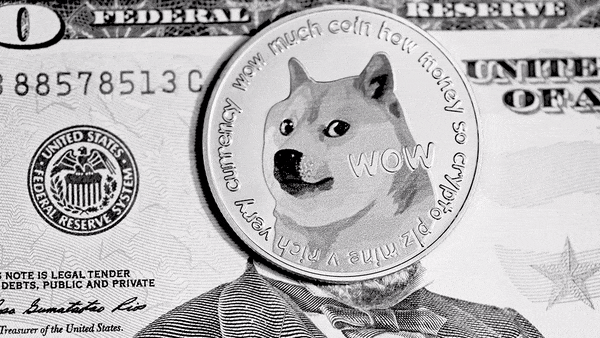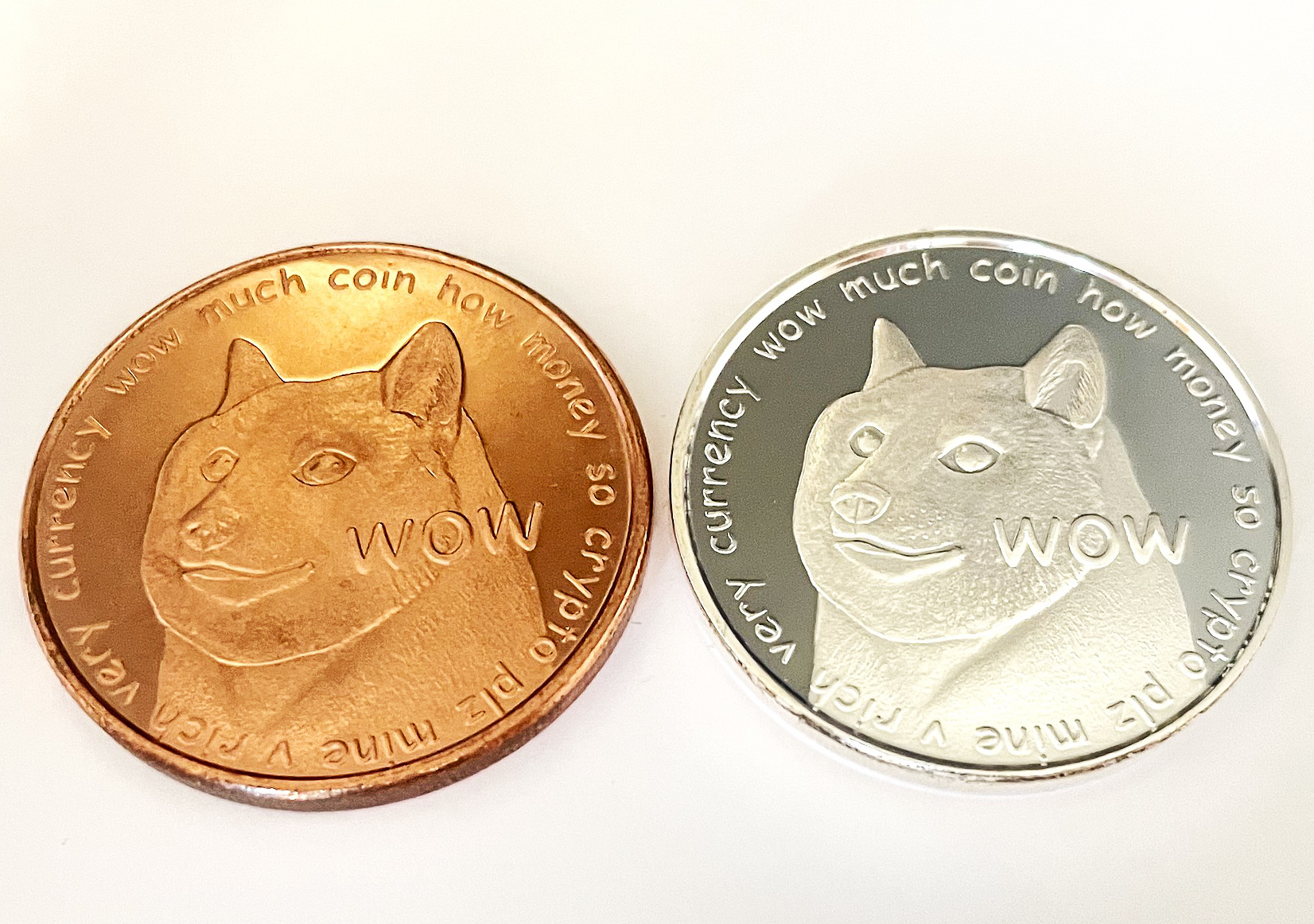Everything
Put your hands up if you’ve ever been personally victimised by a crypto bro in the corner of a house party talking about Dogecoin or Ethereum? If you haven’t, I envy you. If you have, I still envy you if you were able to both understand and engage in a concept that sounds like fantasy and can divide a room faster than that time Moses shook his stick at the Red Sea or Gen Y and Gen Z fighting over whether skinny jeans are still in fashion. (They’re not.)

The idea of crypto or digital currencies isn’t new. As far back as the late ‘90s there were attempts to create online currencies – Bit Gold for example – but all failed to get off the ground. Then, in 2008 a paper released by someone writing under the moniker Satoshi Nakamoto titled Bitcoin: A Peer to Peer Electronic Cash System – was shared on a mailing list setting into motion the first wave of cryptography. (Fun fact – no one actually knows who the mysterious Satoshi Nakamoti really is. While you think you’d be keen to know who the person(s) behind a financial revolution is, most crypto fans are happy not knowing.)
Fast forward to today where cryptocurrencies occupy shifting ground as far as cultural perceptions and social value – if not economic value – are concerned. At the same time Australian auction house Lloyds is allowing potential buyers to use Bitcoin to purchase rare Holdens China shut down major Bitcoin mines. But one of the most interesting, or concerning depending on your viewpoint, was the role billionaire Elon Musk played in the fluctuating value of virtual currencies Dogecoin and Bitcoin.
During a stint hosting Saturday Night Live, Elon Musk casually threw out a non-endorsement that sent the meme-inspired Doge into a nosedive, hitting as low 47 US cents (59 cents) on crypto exchange Binance. This followed previous mentions of the once-obscure coin on Twitter, conveniently boosting its popularity and public image. During this period, Musk also announced that Tesla would no longer be accepting Bitcoin due to environmental concerns.
Lil X is hodling his Doge like a champ. Literally never said the word “sell” even once!
— Elon Musk (@elonmusk) July 17, 2021
This, commenters say, was evidence that Musk was attempting to influence the crypto market and manipulate the value of currencies through his status as a slightly weird, weed-smoking celebrity billionaire. Which is also one of the primary concerns that some within the finance sector have about Bitcoin, Doge and crypto at large – it’s unstable, manipulated internally and a bubble that is due to burst.
And how that’s somehow any different to the behaviour of blue-suit wearing, Freakonomic-reading traders in Wall Street and their tactics shorting GameStop – well, you’ve lost this author.
To wade through the murky crypto terrain – a cartography of cryptography if you will – ICON spoke to the guy who literally wrote the book on the topic: Digital Economist with a PhD in cryptocurrencies and author of Money Code Space : Hidden Power in Bitcoin, Blockchain, and Decentralisation, Dr Jack Parkin.
For the basics, such as myself, what is cryptocurrency?
Cryptocurrencies are digital units that can be transferred across a network of computers. The people who build these networks carefully design the rules by which users can play by, based on their ideas around how economies should function. This is why there are so many variations of cryptocurrency – different people have different ideas of how the perfect currency should behave. For example, the most well-known cryptocurrency, Bitcoin, is modelled to behave like gold with its limited supply and in-built mechanism for releasing new coins referred to as “mining”.
If I am going to invest any of my actual cash into this I guess the most important question is – can I buy a house with my crypto gains further down the line?
Cryptocurrencies work like any other currency or asset in the sense that I can exchange them for another currency or asset, as long as someone else is willing to match that trade. I have met people who have purchased houses directly with cryptocurrencies but it is incredibly rare you will find someone who is willing to make this exchange, particularly for that specific five-bedroom ocean view property you’ve been eyeing up. A much more common way would be to use an online cryptocurrency exchange to trade your crypto gains for Australian dollars. These exchanges provide a marketplace for people buying and selling crypto. Once you have parted ways with your crypto and received those “precious” Aussie dollars (taking into account any capital gains tax you might need to pay) you will then be able to buy the Lamborghini you have been so desperately chasing in your dreams.
The saga surrounding Dogecoin and Elon Musk’s involvement felt like a seminal moment. How do events like this drive discussions around crypto’s malleability via endorsement?
In the venture capital space this is called “signalling”. When huge investors with incredibly successful portfolios invest in a startup company, lots of smaller fish will quickly move to get in on the action so they can also profit from the tech guru’s intuition. The public nature of cryptocurrency investment means that a positive or negative tweet from a revered technology entrepreneur can cause the value to spike or crash as people scramble to buy or sell on their favourite online exchange.
Stories like Elon Musk moving the market price of Dogecoin or, similarly, Reddit users manipulating GameStop shares, beautifully demonstrate how all economic value is a product of collective sentiment. Nothing materially changed at all for Dogecoin as a cryptocurrency – a joke coin originally released to pay homage to the popular dog meme of a Shiba Inu – but the sentiment around it rocketed based on the words of one man.
This price spike was several orders of magnitude higher on the Richter scale than what is regarded normal in traditional markets. The growing sentiment caused a 20,000 per cent increase in the value of Dogecoin in just one year. Evidently, the value of cryptocurrencies are extremely susceptible to endorsement from the right person.

Are cryptocurrencies any more malleable or manipulatable than, say, Wall Street shares being gamed by hedge funders?
Events move markets. This is a normal phenomenon – shares in BP fell by 51 per cent after the Deepwater Horizon oil spill. Cryptocurrency markets are no different – when the Chinese government banned Bitcoin mining its value sharply fell. But cryptocurrencies also experience a more insidious element shared by traditional markets: manipulation.
While finance is the most heavily regulated market in the world, market manipulation still occurs. In the nascent cryptocurrency industry, this is much more likely as the market is lightly regulated. The late technology entrepreneur, John McAfee, was criticised for buying cryptocurrencies, creating hype around them through Twitter, and then selling his appreciating hordes. Similarly, employees at the company Coinbase were accused of insider trading in 2017 – buying Bitcoin Cash before the cryptocurrency was listed on their exchange, which caused its value to spike.
Another important thing to note is early adopters of cryptocurrency have become powerful players in the market as their wealth has soared exponentially. These crypto “whales” can execute a large sell order on an online exchange, dramatically reducing the value of a coin which they can buy back at a lower price. The cryptocurrency market is echoing some of Wall Street’s dirty tricks and is proving to be more susceptible to manipulation than its forefather.
Back to Doge, was there any lesson for crypto investors to learn from this?
Yes, the Dogecoin story personifies the unpredictable nature of crypto markets. Most people discounted Dogecoin and rightly so. It was a joke coin that was largely left by the wayside by its developers, investors, and the crypto community as a whole.
Other coins have plummeted during Dogecoin’s resurgence. For investors, this should reinforce the mantra “only invest what you can afford to lose”. Picking the right coin can be difficult and require time-consuming research. Anyone examining Dogecoin in 2020 by all means shouldn’t have added it to their portfolio. But if they did decide to, they’d now be the beneficiary of some enormous profits.
For this reason, it’s sensible to diversify crypto investments across a number of different coins to increase the chance of picking a good egg and reducing the impact of choosing a bad one. As in any market, diversification is a strategy to reduce risk exposure.
Is cryptocurrency the future? Is the future now? Will it become a standard trading tool on the side while traditional cash remains the currency of the everyday people?
I have thought about this question a lot since I first started researching cryptocurrencies in 2013. It’s the million dollar question – quite literally if you have already made personal investments. I do not see cryptocurrencies disappearing and their technologies are already being used to solve problems that don’t just exist within the confines of monetary policy. Meanwhile, central banks are designing their own digital currencies modelled on the innovations of crypto.
However, I do not see crypto as a magic bullet. Nation state currencies are useful in their own way and maintain significant economic and emotional ties with their citizens. They have limitations, yes, but so do cryptocurrencies. More importantly, there are now as many coins as there are ideas of how money should function. They are certainly here to stay, but exactly how and to what extent they penetrate traditional economies is yet to be seen.
For the large part, cryptocurrencies remain speculative investment vehicles lacking a significant uptake in people using them to buy and sell things – the true signifier of a functioning money.
If you’re seriously considering trading in the crypto markets but unsure where to start, you can pick up Parkin’s book at Amazon. That way you can be that guy at the party, but actually know your shit.